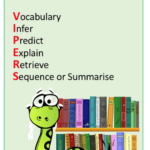Teachers read regularly to the children through modelled reading, shared stories, poems and information books. Teachers and children really enjoy sharing books and listening to stories, which provides opportunities to visualise, develop their imagination and to learn new vocabulary.
In Foundation and Key Stage 1 the children can take an additional choice book which they can choose from their reading corners. We have daily Guided Reading or Whole Class Reading sessions in all classes and teachers record progress as the children read. At Ratby Primary School we have individual Reading diaries where teachers and parents write comments to one other about each child’s individual progress.
At Ratby Primary School we use Rhino Readers in Foundation and Key Stage 1. In KS1, children will receive a phonics book matched closely to their phonics ability. This book should be read to 95% fluency. These books are sorted into the phonics levels: Level 1, 2, 3, 4, 5 and 6.
In Key Stage 2 we use Lexiles to ensure all of our books are tailored to the needs of our pupils and match their individual ability. As children secure their early reading knowledge and skills, they will move on to Lexiled books. Each child is assessed through a reading assessment resource before progressing to the next level.
Across a half term we ensure children have the opportunity to read a range of genres and develop their reading skills.
Mastery in phonics is fundamental to children being able to access a broad range of fiction and non-fiction texts, across the curriculum. Phonics is taught daily, with a drive to address the needs of all learners. During the academic year, parents are invited to workshops and practical sessions to demonstrate letter to sound correspondence and promote consistent use of the school’s scheme – ‘Twinkl Phonics’. Those children struggling in phonics are not left behind because the school employs a range of strategies to close the gap, including precision teaching, direct phonics and intervention sessions.
Children are expected to read at home and the school reading scheme is carefully matched, in the first instance, to children’s phonic levels. As children become more fluent, we help them make book choices, related to their interests and ensure that questioning is carefully scaffolded. For EYFS and KS1, phonic support packs are sent home regularly to consolidate in-class learning and to inform the parents of gaps identified from recent assessments.
Pupils who do not pass their Phonics Screening Test continue to have intervention to support the acquisition of these key skills.
Individual reading takes place for all children in EYFS and KS1 regularly and guided reading groups are used alongside whole class reading to model and assess skills and ability. In order to develop reading for meaning, we teach all the reading strands from the National Curriculum as follows:
- Decoding
- Retrieving/recording/identifying information
- Summarising and predicting
- Inference
- Meaning and its enhancements
- Comparisons within and across texts
In years 2 to 6, children take part in daily whole class reading sessions. These sessions allow children to gain a clear understanding of the reading process and interpret meaning in a scaffolded, supported and independent way. Teachers are able to hear individual children read aloud during these sessions and within cross-curricular subjects. Whole class reading incorporates poetry, drama, music, fiction, non-fiction and debating opportunities in order to engage children and develop empathy. During the sessions, support is offered to the less confident readers and challenge given to those who are greater depth. Wherever possible, children’s vocabulary is acquired and enhanced as part of shared, guided and individual reading.
Any feedback and marking is given within the session where possible and teachers use AFL to identify those children who need help with particular skills, ensuring they are scaffolded/supported as appropriate. Assessments and tracking is carried out using Reading Pro and PIXL/SATs tests and ongoing formative assessment sheets. These help to plan targeted intervention and close gaps as quickly as possible.
VIPERS
Children are explicitly taught the skills of reading (outlined in the National Curriculum and the KS1 and KS2 test domains) through the use of VIPERS which were created by Rob Smith (The Literacy Shed).

